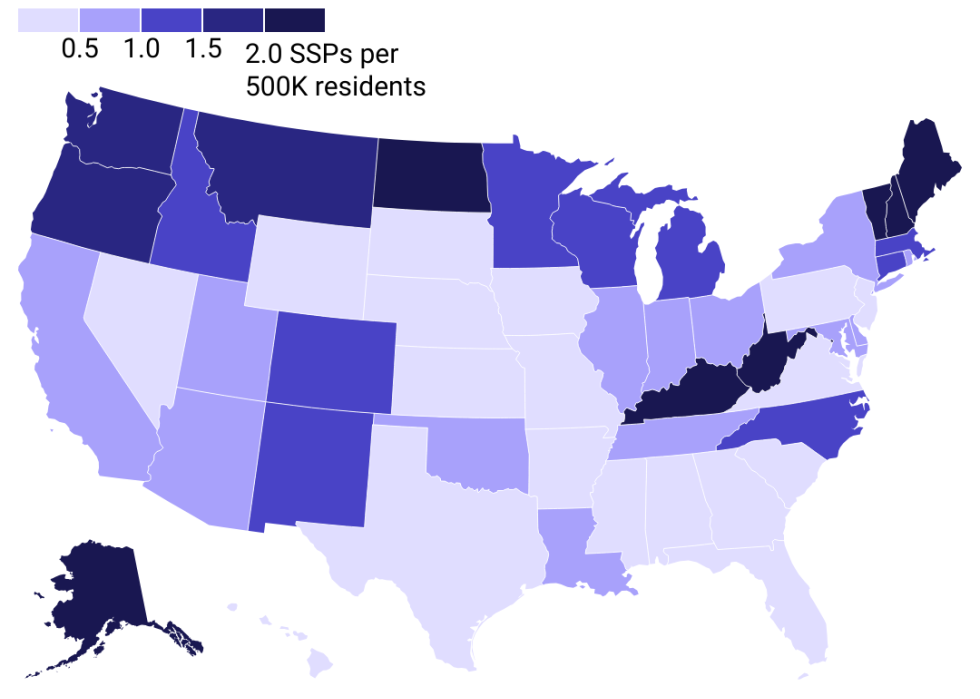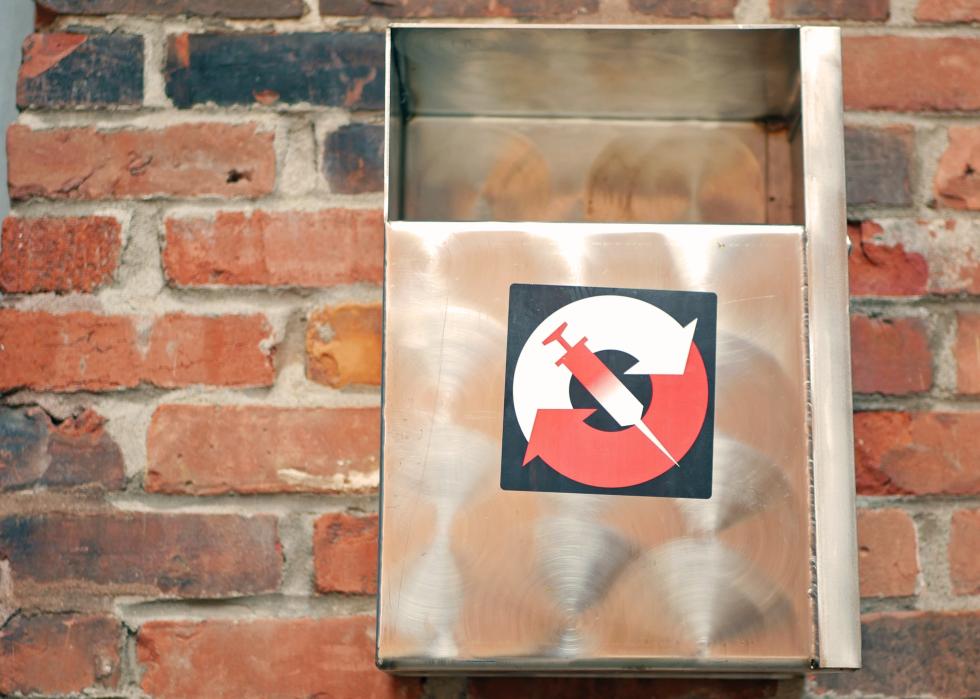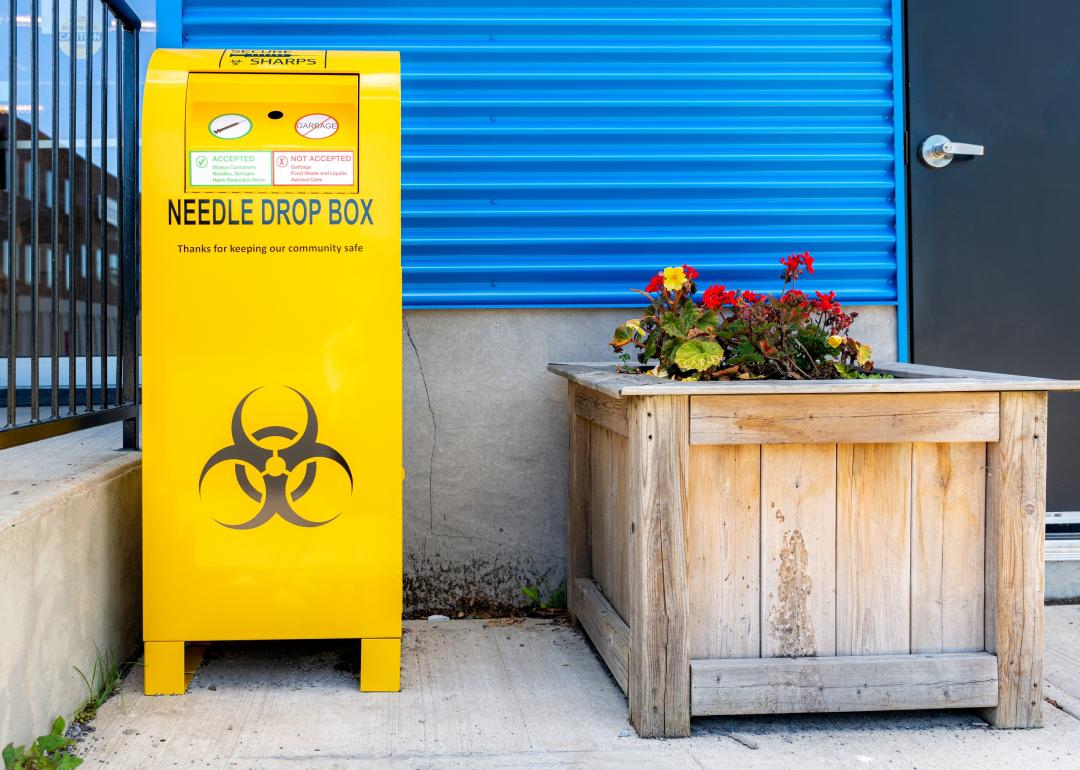How syringe exchanges in North Carolina reduce the spread of disease

Despite the lifesaving potential of these kinds of programs, syringe exchanges were federally banned at the national level from 1988 to 2015. A study published in the International Journal on Drug Policy attributes the end of the ban to shifting perspectives and lessons learned during the HIV/AIDS epidemic.
The rise of HIV infection related to the growth of the opioid epidemic in the early 2010s was powerful enough to sway politicians who had been reluctant to embrace syringe exchanges. States in the years since passed their own laws to create exchange programs. Most recently, a bill authorizing community syringe exchanges passed in the Nebraska Legislature but was ultimately vetoed by Gov. Jim Pillen.
Syringe exchanges in North Carolina include:
AIDS Leadership Foothills area Alliance (ALFA) operating the Foothills area Harm Reduction Mission
Hickory, North Carolina
Beloveds CommUNITY Initiative
Red Springs, North Carolina
Birches Foundation
Mount Airy, North Carolina
CHA Syringe Services Program
Kannapolis, North Carolina
ekiM for Change
Greenville, North Carolina
Guilford County Solution to the Opioid Problem (GCSTOP)
Greensboro, North Carolina
Holler Harm Reduction
Marshall, North Carolina
Needle Exchange Program of Franklin
Franklin, North Carolina
North Carolina Harm Reduction Coalition Cumberland
Cumberland County, North Carolina
North Carolina Harm Reduction Coalition Durham
, North Carolina
North Carolina Harm Reduction Coalition Haywood
Clyde, North Carolina
North Carolina Harm Reduction Coalition Vance
Vance, North Carolina
North Carolina Harm Reduction Coalition Wake
Raleigh, North Carolina
North Carolina Harm Reduction Coalition Wilmington
Wilmington, North Carolina
Points of HOPE Gastonia
Gastonia, North Carolina
Points of HOPE Hickory
Hickory, North Carolina
Points of HOPE Lincolnton
Lincolnton, North Carolina
Points of HOPE Shelby
Shelby, North Carolina
Points of HOPE Statesville
Statesville, North Carolina
Prevention Point Program AKA: Prevention Point
Washington, North Carolina
Queen City Harm Needle Exchange, NC
Charlotte, North Carolina
Rutherford Mobile HRT (Harm Reduction Team)
Forest City, North Carolina
Smoky Mountain Harm Reduction
Franklin, North Carolina
Surry County Harm Reduction Initiative
Dobson, North Carolina
Syringe & Support Services Wayne County
Goldsboro, North Carolina
The Anchor Holds, Inc
Spring Hope, North Carolina
The Hope Exchange
Williamston, North Carolina
The Steady Collective
Asheville, North Carolina
Twin City Harm Reduction Collective
Winston-Salem, North Carolina
Uwharrie Harm Reduction Initiative
Albemarle, North Carolina
Wilkes Harm Reduction Collective
North Wilkesboro, North Carolina
WNCAP Harm Reduction
Asheville, North Carolina

Critics often argue that needle exchanges promote drug use at the expense of taxpayer dollars, or that they feel unsafe around the people with substance use disorder that use them.
Research conducted over three decades, however, shows that syringe exchange programs provide a benefit to communities, according to the National Institutes of Health.
A 2019 study from the National Bureau of Economic Research found that syringe exchange programs reduced HIV diagnoses by as much as 18%. They've also been shown to save taxpayers money. In Indiana, a state-implemented syringe exchange program is expected to save taxpayers $120 million. People who use syringe service programs are also five times more likely to begin a drug treatment program and three times as likely to quit injection drug abuse, according to the CDC.
This story features data reporting by Elena Cox, writing by Dom DiFurio, and is part of a series utilizing data automation across 46 states.
